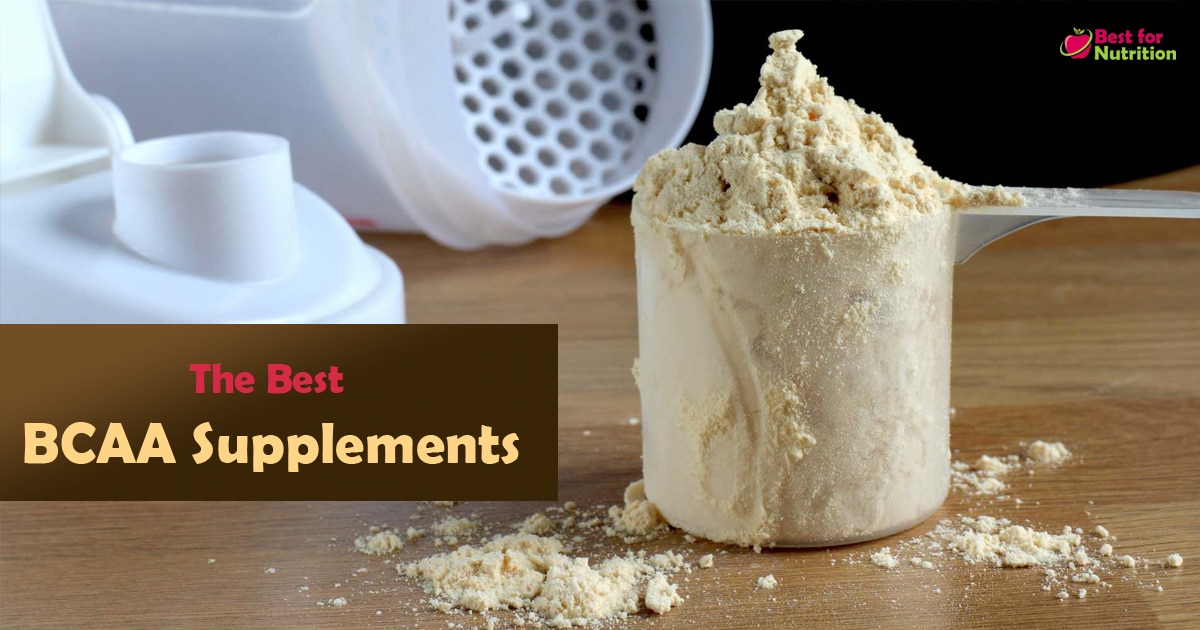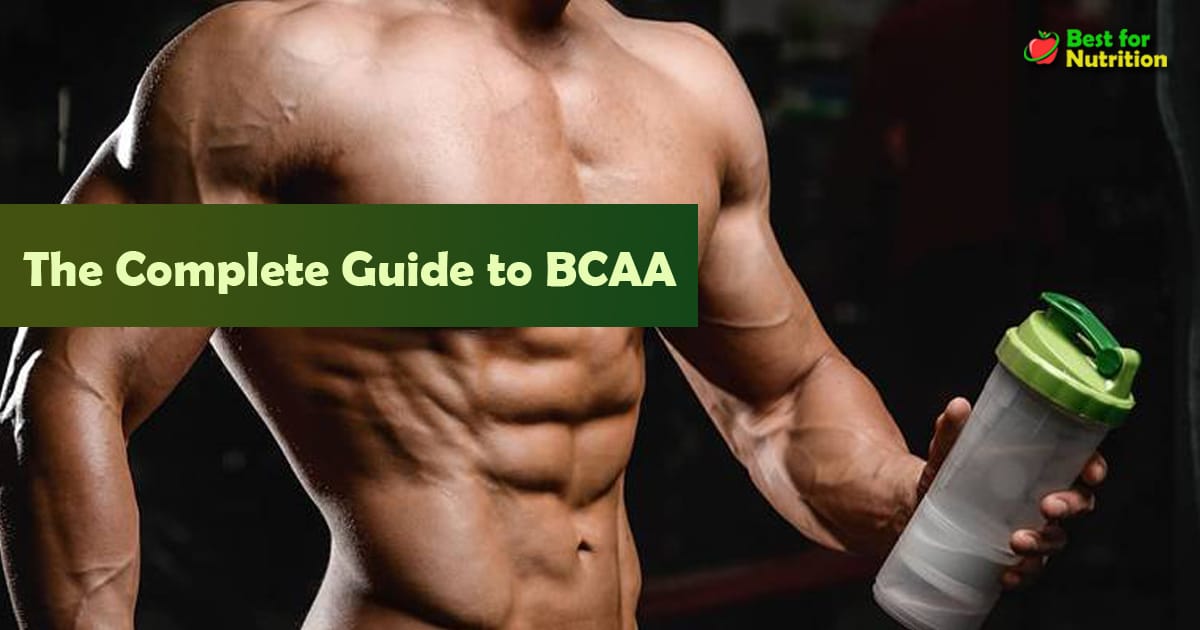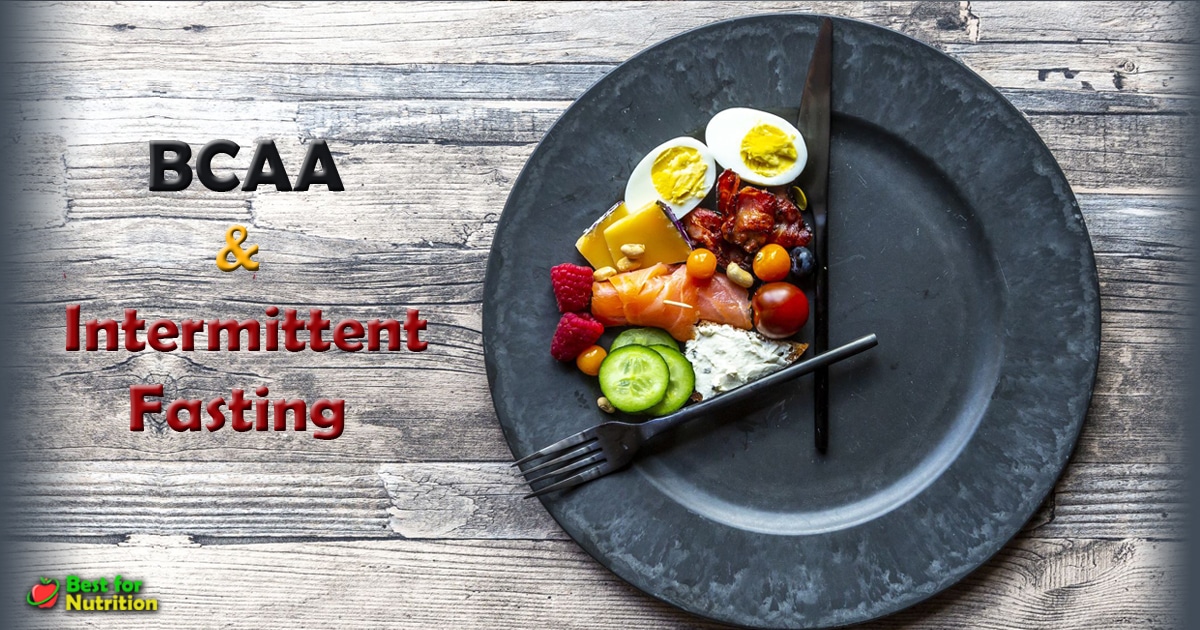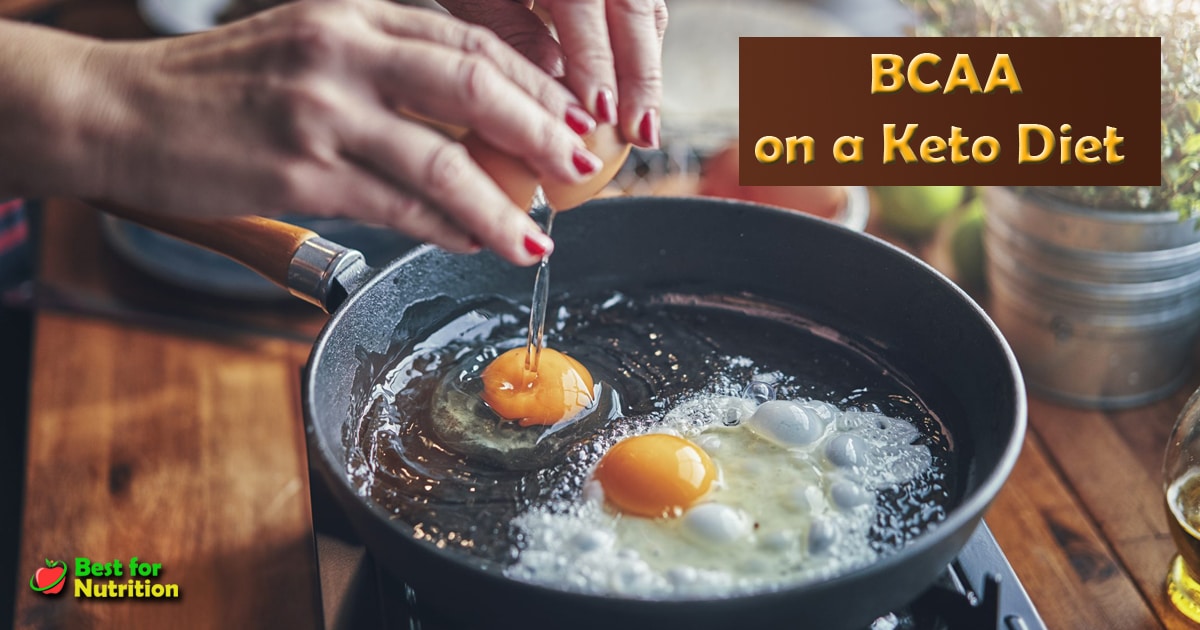Most BCAA supplements are labeled ‘ZERO’ calories. BCAAs are great for promoting weight loss and improving muscle mass.
Wow! That’s great news. Now I can have as many servings of my delicious berry-flavored BCAA shake throughout the day and still not gain any weight! Right?
No! Sorry, you’ll find yourself adding on a few extra pounds if you do that as BCAA supplements do have calories.
Overdosing on your BCAAs can not only add up enough calories to break your weight loss goals, but they can also cause other undesirable side effects as well.
So why do supplement brands claim BCAAs don’t have any calories? Can you take BCAA during fasting? How much BCAA can you take for effective weight loss?
Let’s take a closer look at the BCAA nutrition facts and the calories in BCAA to find our answers.
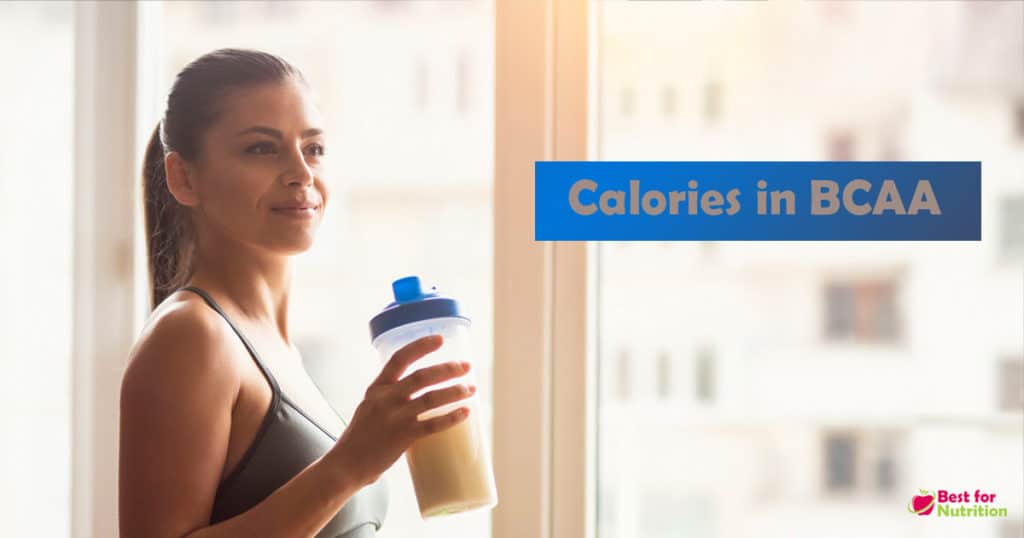
What are BCAAs?
BCAAs are Branched-chain amino acids that have a branched side chain giving them their unique name (1).
The three BCAAs are leucine, isoleucine, and valine, and they are classed as essential amino acids (2). These essential amino acids can not be made by our bodies and are needed to be obtained from your diet (3).
Unlike other amino acids or whole proteins, BCAAs are not metabolized in the liver directly instead go to the muscle tissues where they are oxidized and used by the muscles (4).
You can get enough BCAAs from a well-balanced diet (5). In comparison to the supplements, BCAAs acquired through foods, lead to steadier absorption rates because of the presence of other important nutrients in the food.
Summary: Leucine, isoleucine, and valine are the three BCAAs that are essential amino acids that should be obtained from food. They can be directly metabolized in the muscles and provide instant energy for a workout.
Do BCAAs Have Calories?
Yes, BCAAs do have calories. In a 1990 study published in the American Journal of Clinical Nutrition, it was stated that BCAAs had the following caloric values of the individual amino acids that constitute it (6).
Leucine produced 4.65 calories per gram, Isoleucine also produced 4.65 calories per gram and valine produced around 4.64 calories per gram. The ratio of leucine, isoleucine, and valine are in 2:1:1 in the supplement, so one gram of BCAA supplement will give around 4.65 calories, which is akin to 46.5 calories for 10 grams.
However, it should also be kept in mind, that BCAAs are the most effective supplement for workouts and high-intensity sports in terms of its muscle-building abilities (7).
Considering that most people take about 10 to 15 grams of BCAA a day for their muscle building needs, they will be taking approximately 40 to 60 calories.
But, if you compare this with a scoop of protein powder with the same amount of BCAAs, it will be about 30 grams, and it produces around 120 calories. BCAAs are the lowest calorie supplements that offer high-quality amino acids for muscle building.
Summary: BCAAs have lower calories but are not completely devoid of it. 10-15 grams of BCAA required for muscle building gives around 40-60 calories which is much lower, compared to its contemporaries like whey protein.
Why is my BCAA Supplement Labelled as Having 0 Calories?
Now that we understand that BCAAs have some calories, the obvious question that comes to mind is “Why are the BCAA supplements label their products as “0 calories.”
This is very interesting. The answer lies in the FDA guidelines. FDA is the short form of Food and Drug Administration, which develops dietary guidelines for Americans. In fact, a loophole in this regulation explains the matter.
According to it, the supplement manufacturer can’t declare the protein content of a product if it is not a whole protein. The individual amino acids are not calculated. BCAAs come in the latter bracket hence not considered.
FDA regulations allow the manufacturers to calculate the calorie content of their products using a number of methods, including Atwater-method, which involves adding up the calories from protein, carbohydrate, and fat.
Therefore, technically if the product doesn’t contain carb and fat, nor a complete protein, but free amino acids which are not considered at all, the 0 carbs, 0 protein, and 0 fat adds up to 0 calories.
Summary: A loophole in the FDA guideline, enables the advertisers to claim that BCAAs have 0 calories.
BCAA Nutrition Facts
To give you a better understanding of this, here is the list of the calorific value of free form amino acids as found in the above-mentioned study (8).
The graph is adapted from May and Hill (1990), showing the calorific value of all the individual amino acids, stating that calories produced by each of the BCAAs (4.65 Kcal/g), were nearly similar to a dietary protein of 3.2-4 Kcal/g.
Summary: BCAA nutrition facts shows that BCAAs have 4.65 Kcal/g, which is the average of the three amino acids that constitute the BCAAs. They have nearly the same calorific value as the dietary protein.
Frequently Asked Questions (FAQs)
What Do BCAAs Really Do?
BCAAs have an anabolic property (muscle-building) and are crucial in muscle recovery, muscle growth, and preventing muscle breakdown. They also improve strength and endurance by providing instant energy as required (9).
Do You Need Extra BCAAs?
Taking BCAAs would make sense if you are into cardio or intense training program. But the need depends upon your protein intake in a day.
BCAAs are high in leucine, the most efficient amino acids that signal muscle protein synthesis. However, leucine is also high in complete protein sources.
Therefore, whether you get your leucine or BCAAs from your protein shake or a piece of steak, it is completely up to you.
Can You Drink BCAAs During Intermittent Fasting?
The idea behind intermittent fasting is to lower your insulin level far enough and for long enough, as you do in a fasting period, and force the body to start burning fat.
Insulin level drops when you do not consume food and this decreased insulin level is followed by weight loss.
BCAA supplements can be a good option in intermittent fasting and can optimize your workout without causing an insulin spike provided you time it properly closer to your exercise and do not cross the advised range.
Should You Take BCAAs Before Fasted Cardio?
Intake of BCAA supplement before any form of intense training is beneficial for the muscles.
However, if your motto is to do cardio in a fasted state, BCAA will definitely help you do so, by muscle protein synthesis without causing an insulin spike (10).
Technically, the low calorie of BCAA does cause a negligible spike but it can be reversed quickly during cardio, and most of the time it gets used up very fast in the skeletal muscle without even converting to glucose.
Do BCAAs Contain Carbs?
No, BCAAs do not contain carbohydrates. They are a group of three amino acids which are building blocks of protein.
Can I Use BCAAs for Fat Loss?
BCAAs boost fuel recovery, promote muscle synthesis, improve your aerobic capacity, and lower overall fatigue. It boosts your energy in a calorie-deficit state. But, now we have read that it is not totally calorie deficit.
Even though very less, it does have calories. This minuscule calorie won’t mean anything as long as you are having it in moderation. So, yes you can use BCAA for fat loss.
However, in extreme cases when you are in a deep and grueling deficit and start drinking this supplement without worry because of its ‘0 Calorie’ tag, you may end up putting in a whopping amount inside you, that can totally stop your weight loss.
The Final Note
BCAAs are a collection of three amino acids, leucine, isoleucine, and valine. Most BCAA supplements have them in the ratio of 2:1:1 for the maximum effect.
It has also become highly popular because of its ‘0 calorie’ claim, which is a boon for the fitness enthusiasts who work out in a fasted state.
On investigating it was found that BCAAs actually do have calories, but it is lesser than most of the other protein powders and causes very little effect on the fat-burning state.
Its instant oxidation in the muscles during exercise and raising a negligible insulin spike have made them a coveted supplement in intermittent fasting. BCAAs also have proved to be a good addition in a keto diet.
Just be careful not to overdose on your BCAA supplements as gulping down your BCAA shake multiple times a day can add up those calories and cause many side effects, including unwanted weight gain.
